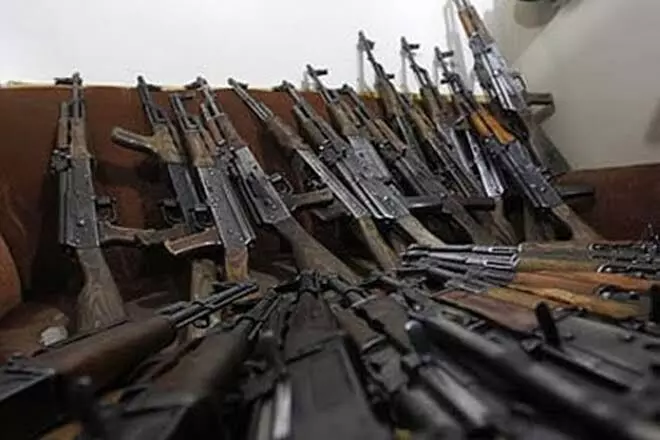Arms and the men: In Bihar’s bureaucracy, the comic becomes criminal

George Bernard Shaw once wrote a famous satire titled Arms and the Man. In Bihar, the title feels eerily prophetic—not as comedy, but as an indictment of a bureaucracy where district magistrates often play starring roles in a dark farce involving gun licenses, political patronage, and administrative impunity.
In a significant development, Justice Chandrashekhar Jha of the Patna High Court has ordered the District Court in Saharsa to conduct a daily trial and deliver a verdict within six months in a long-pending case against IAS officer Robert L. Chongthu, currently serving as Principal Secretary to the Governor of Bihar. The case stems from his tenure as Saharsa District Magistrate, where he was charged in 2004 under multiple sections of the Indian Penal Code and the Arms Act. The CJM court had taken cognizance of the charges based on a police FIR.
The allegations are serious: during his time in Saharsa, Chongthu allegedly facilitated large-scale irregularities and illegalities in the issuance of firearms licenses. The then Superintendent of Police, Arvind Pandey, conducted an investigation which found that licenses were issued without mandatory police verification. In many cases, licenses were granted to individuals who were not local residents, had unverifiable addresses, or, in some instances, didn’t exist at all.
Alarmingly, the probe also revealed that notorious criminals from Patna were granted gun licenses in Saharsa. One such individual had a police record at Pirbahore police station in Patna and yet managed to secure a license hundreds of kilometers away.
In a telling admission, the District Magistrate’s own security officer confessed to using his influence to get licenses issued to four of his relatives, who lived 400 kilometers away from Saharsa.
The SP’s investigation found that the DM had overruled objections raised by the Arms Magistrate and senior clerks of the arms section and issued licenses arbitrarily. The police chargesheet stated that the DM acted out of “extraneous considerations” and issued licenses in a “completely arbitrary manner.”
The Law Department of Bihar recommended that the General Administration Department grant prosecution sanction against Chongthu. However, the officer, now a senior bureaucrat, filed a petition in the Patna High Court seeking quashing of the FIR. The court not only dismissed his plea but also directed the Saharsa District Judge to conduct a speedy trial.
Currently, according to official figures, Bihar has over 82,585 active gun licenses. From panchayat-level politicians to national leaders, from land mafias and contractors to university professors—firearms have become an almost normalized part of public life. In this backdrop, the Saharsa case is not an aberration—it’s a mirror to a deeper rot.
Last week alone, Bihar saw the transfer of over a dozen District Magistrates. In one border district near Nepal, a DM approved a record 300 gun licenses in the final week of his tenure before being posted to the capital. In another border district near Bangladesh, the outgoing DM issued 600 licenses before moving to Patna.
In Central Bihar, just 50 kilometers from the state capital, a DM approved licenses for 400 individuals just before his transfer order took effect. That officer has since been promoted to Divisional Commissioner.
Even in a prominent religious town, the local District Magistrate issued 309 licenses within a single week.
Perhaps the most startling example involves a young officer known for his “honest image.” During his posting, he issued 79 gun licenses—none of the recipients were locals. All hailed from his home district in another part of India. Whenever an inquiry was initiated against him, the officer reportedly positioned himself in the Chief Minister’s residence in Patna—evading oversight.
In Bihar, it seems, arms licenses are less about security and more about influence, access, and quiet transactions. The tragic irony? What should be tightly regulated tools of personal defense have become tokens of power, handed out not on merit, but on whim.
